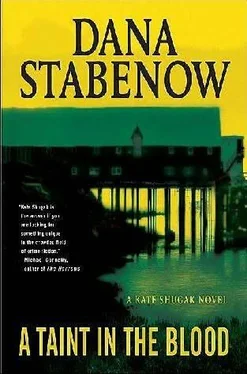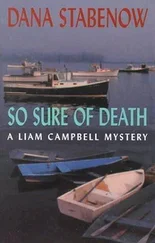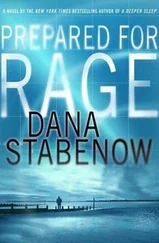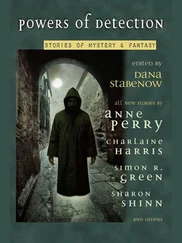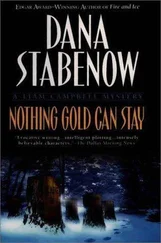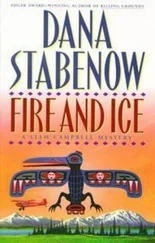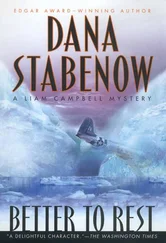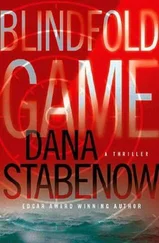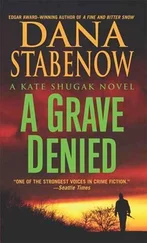Kate looked at him with real respect. “I’m impressed.”
He preened a little.
“Did you work the case?”
He shook his head. “Nope. Heard the shop talk about it, of course, and we were a lot smaller force in those days, so what one trooper knew, pretty much all of us did.”
It was the closest thing she was going to get to an impartial eyewitness account. To say that Kate was excited was an understatement. “Tell me everything you remember,” she said.
“Tell me why you want to know,” he countered.
“Victoria’s still in jail, out at Hiland Mountain. Her daughter hired me to get her out before she dies, which is looking sooner rather than later because Victoria’s got cancer.”
“No parole after thirty years?” he said, frowning. “That doesn’t sound right.”
“I’ve read the trial transcript. The judge was horrified that she’d killed her own son for money. He didn’t want Victoria to get out of jail, ever.”
“Which judge?”
Kate closed her eyes, the better to visualize the transcript. “Kelly? Kennedy? Kiddle, that was it, Judge James Kiddle.”
“Oh yeah,” he said, a nasty smile spreading across his face, “old Jim Kiddle. We loved cases coming before old Jim. He never met a perp he liked.”
“Is he still around?”
Max shook his head. “He retired about seventeen years ago, when the grandchildren got old enough to enjoy. Three years ago, he took his grandson white-water rafting on the Russian River and fell out of the raft.” Max shook his head. “Damn shame, that. Man was a monument to law enforcement.” He reflected. “Of course, he was eighty-four at the time. At least he went out doing something fun.”
It was the only reference he’d made all day to his own situation. “Do you have family?” Kate said, her voice carefully devoid of sympathy.
“Nah. Well, an ex-wife, who stuck it out up here for all of five minutes before she hightailed it back Outside.” His face softened. “It was my fault. She was new into the country, wasn’t used to the cold or the dark, and I was gone a lot. She thought she was getting a husband, and what she got instead was missing in action. I don’t blame her for leaving.” He dismissed the subject with a wave of the hand. “About your case.” He paused, eyes narrowing. “It was a different place back then, a different time. You need to understand that going in.
“Weren’t but fifty thousand people in the whole state. Everybody knew everybody else-we were all on a first-name basis, made no difference if you were digging ditches or running an airline. Best thing about a frontier society is that it’s wide open to everybody. Course, that never lasts long. Civilization is an insidious thing. You ever hear of Lazarus Long?”
“Sure,” Kate said. “Robert Heinlein character, lived forever.”
Max’s smile was approving. “Lazarus Long said that when a place gets crowded enough to require IDs, it’s time to go elsewhere.”
“You think it’s time to go elsewhere from Alaska?” Kate said.
He cackled. “I’m about to any minute now.”
Kate laughed with him, even if it did feel a little macabre.
“Still,” he said, “even on the Alaska frontier there were the high-muckety-mucks, like there always are, people who get things done or get lucky, usually both. This woman-what was her name again?”
“Victoria.”
“That’s right, Queen Victoria. We called her that,” he said in answer to her look, “Queen Victoria. You couldn’t see the crown when they brought her into the station, but she held her head like it was there, and she sure as hell looked down her nose like it was there. In court, too, from what I hear. Yeah, Queen Victoria was a daughter of two families who made it big in the north, part of the Alaska aristocracy, at least before ANCSA came along and the Natives started elbowing for room at the top. The Pilzes made their money in coal, the Bannisters in supplies, and then they merged by marriage, and it was like the whole state was served up on a plate to their offspring. There isn’t a pie baked in Alaska they don’t get a slice of.” He cocked that eyebrow. “You talk to any of them yet?”
“Her daughter, Charlotte, who hired me. Her surviving son, Oliver. And Victoria. Sort of.”
“And I suppose she says she didn’t do it.”
“She’s not saying anything at all. She fired me.”
It was the first time all day she’d seen him look surprised. “You’re kidding me.”
“Nope. Turns out her daughter didn’t tell her she’d hired me to begin with, and Victoria wasn’t happy when she found out. I went out to Hiland to talk to her and she fired me.”
“Then what are you doing here listening to me yammer on?” He drained the current martini. “Not that I’m complaining.”
“Her daughter pointed out that since she was the one who hired me, she was the only who could fire me.”
“Huh,” he said, and looked around for the bartender. “I have to say, that may be the first time I’ve ever heard of a perp not declaring their innocence every hour on the hour of every day they’re on the inside.”
“Me, too,” Kate said. “Will you tell me what you remember about the case?”
“Do I get a consultant’s fee?”
Kate grinned and pointed at the new martini that had materialized in front of him.
He cackled, throwing his head back, and again Kate could see the man that he had been. She wondered about the ex, if she was still alive. He hadn’t mentioned children.
“Thirty years ago,” Max said, taking an appreciative sip of martini, the unending supply of which did not appear to be affecting him in the slightest. He spoke clearly, without hesitation, from memory, and as he spoke, a young woman walked past on the sidewalk outside the window. She was wearing a black leather jacket hung with chains, racing gloves with the knuckles studded with silver, and black eye shadow and lipstick. Paper clips climbed the curve of her ear, which led the eye upward to the spiked purple hair moussed to stand straight up from her scalp. In the space of two strides, she morphed into a slim young woman with straight light brown hair hanging to her waist, round glasses perched on the end of her nose, a blue-flowered dress gathered just beneath her waist and falling to feet, clad in Birkenstock clogs. Nickleback was superceded by Paul Revere and the Raiders, crack and AIDS was yet to be heard of, the United States was still in Vietnam, and the final report of the Church hearings was three years away.
In Alaska, ANCSA was barely a year old, plans for the TransAlaska Pipeline were going full bore, and in two years little Molly Hootch of Emmonak would file a lawsuit that would force the state of Alaska to build her and her one thousand coplaintiffs schools in their villages so they wouldn’t have to leave home to get an education.
“We’ll start with the crime,” Max said, “because that’s where we always start. First I heard of it was reading the story in the Anchorage Times that morning. House burned down in the valley. Seventeen-year-old boy died in the fire. His brother, though injured, survived. His mother and sister were somewhere else and came home just in time to see the younger brother swan-dive out of his upstairs bedroom window. There was a lot of sympathy for the family. The funeral was like a Who’s Who of Alaska. I think the governor came, and I know both senators and our congressman did.”
“Was the husband there?”
“Who?”
“Eugene Muravieff, Victoria’s husband and the dead boy’s father. Was he there?”
Max rubbed his nose. “No.”
He let the single syllable lie there and gather dust.
“What?” Kate said.
Max shook his head. “Who’s telling this story? All right, then, let me tell it.”
Читать дальше
